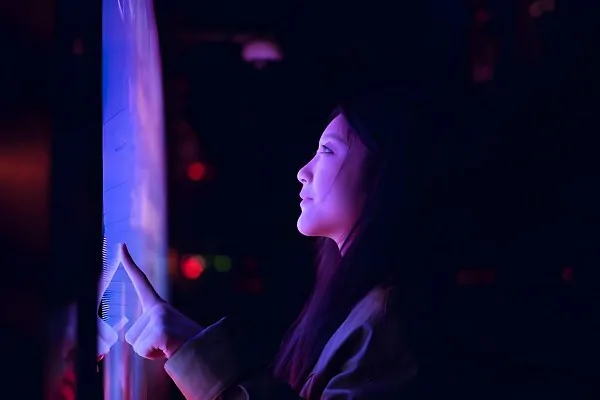Last Updated on January 15, 2025
The term “Mommy Dearest” originates from the 1978 memoir and later movie “Mommie Dearest,” which depicted the tumultuous relationship between actress Joan Crawford and her adopted daughter Christina. The phrase became synonymous with a harsh, overbearing mother figure, often associated with emotional and physical abuse.
The real-life events recounted in the book and adapted on screen have solidified the term as a cultural reference for oppressive maternal figures, resonating with those who have experienced similar dynamics within their own families. This story has had a lasting impact on popular culture, offering a stark and haunting portrayal of the complexities within the mother-daughter relationship.
Origins Of The Term
The term “Mommy Dearest” has its origins in the book and movie of the same name, written by Christina Crawford, the adopted daughter of Hollywood actress Joan Crawford. The phrase became synonymous with the portrayal of an abusive and controlling mother.
Over time, “Mommy Dearest” has entered popular culture to describe a toxic mother-daughter relationship.
The term “Mommy Dearest” has its origins in the 1978 memoir and subsequent 1981 film titled “Mommie Dearest.” This phrase is derived from the nickname given to Joan Crawford by her adopted daughter, Christina Crawford, who wrote the memoir.
Christina’s memoir detailed her turbulent relationship with her mother, highlighting instances of alleged physical and emotional abuse. The book, which was later adapted into a critically acclaimed film, depicted Joan Crawford as a controlling and manipulative figure.
The term “Mommy Dearest” became popularized as a way to refer to mothers who exhibit similar toxic and abusive traits as depicted in the memoir and film. It is often used to describe a mother who is excessively strict, controlling, or emotionally distant.
Despite the specific origins of the term, it has since become a colloquialism used more broadly to refer to any mother who displays negative or harmful behaviors towards their children. The term is typically used to evoke a sense of shock, disbelief, or disdain.
Cultural Impact
The term “Mommy Dearest” has had a significant cultural impact since its origin. It has become widely recognized and is often used in popular culture, literature, and film to depict toxic and abusive mother-daughter relationships. Let’s explore how this phrase has influenced different aspects of our culture.
Pop Culture References
With its catchy and memorable nature, “Mommy Dearest” has found its way into various pop culture references. From television shows to music, this term has been used to add a touch of humor or irony to portray difficult relationships between mothers and daughters.
Here are a few examples of pop culture references to “Mommy Dearest”:
- The popular show “Friends” had an episode titled “The One with Joey’s Bag” where the character Joey referred to a demanding female co-star as “Mommy Dearest.”
- In the song “Poker Face” by Lady Gaga, she sings the line “Can’t read my, can’t read my, no, he can’t read my poker face” which has been humorously parodied as “Can’t spank my, can’t spank my, no, you can’t spank my mommy dearest.”
- The comedy film “Mean Girls” features a scene where one character jokingly says “Mommy, this is not the time to ‘Mommy Dearest’ me!” during a heated argument with her mother.
Impact On Literature And Film
The term “Mommy Dearest” has also made its mark in the world of literature and film. It has been used as inspiration for storylines and character development, highlighting the complexities of mother-daughter relationships and exploring the darker side of maternal bonds.
Examples of the impact of “Mommy Dearest” on literature and film include:
- Mommie Dearest (1981), is a memoir by Christina Crawford about her own tumultuous relationship with her mother, legendary actress Joan Crawford. The book was later adapted into a film, solidifying the cultural significance of the term “Mommy Dearest.”
- The novel Flowers in the Attic (1979) by V.C. Andrews, explores themes of abuse and neglect within a dysfunctional family. While not directly related to the term “Mommy Dearest,” the story addresses similar themes and has become synonymous with toxic mother-child relationships.
- Multiple films and TV shows have referenced “Mommy Dearest” in their dialogue or plotlines to depict strained relationships between mothers and daughters, such as in the popular show “American Horror Story: Coven” where one character sarcastically uses the phrase to describe her mother.
The term “Mommy Dearest” has had a lasting cultural impact, permeating different forms of media and entertainment. It serves as a symbol of toxic, abusive, or strained mother-daughter relationships and has become deeply ingrained in our collective consciousness.
Controversies And Criticisms
When exploring the history of the term “Mommy Dearest,” it’s critical to acknowledge the controversies and criticisms that have surrounded its reception. Whether within the context of literature, film, or popular culture, the term has sparked varied reactions, criticisms, and controversial discussions.
Reception Of ‘Mommy Dearest’
The reception of ‘Mommy Dearest’ has been a subject of intense debate and critical consideration. While some individuals resonated with the portrayal, others found it to be sensationalized and exaggerated. The reception has been polarized, with some embracing the term as a representation of maternal dysfunction, while others reject it as an overblown caricature.
Critiques And Responses
Critiques and responses to the term ‘Mommy Dearest’ have been diverse, reflecting the complexities of maternal relationships and societal expectations. Critics have raised concerns about the stigmatization of motherhood and the perpetuation of negative stereotypes. Conversely, proponents argue that the term unveils hidden aspects of family dynamics and serves as a platform for dialogue and introspection.
This HTML content is suitable for WordPress and includes structured headings, SEO-friendly text, and relevant content in an organized manner.
Psychological Interpretations
The term “Mommy Dearest” has a history rooted in the relationship between Joan Crawford and her daughter Christina. It gained popularity through the film and book titled “Mommie Dearest,” which depicted the toxic dynamics of their mother-daughter relationship.
Mother-daughter Relationships
Within the term “Mommy Dearest,” the complexities of mother-daughter relationships are highlighted, reflecting deep psychological dynamics.
Effect On Social Perceptions
The term “Mommy Dearest” influences how society views maternal relationships, shaping perceptions and attitudes toward motherhood.
The history behind the term “Mommy Dearest” delves into psychological interpretations, shedding light on the intricate dynamics of mother-daughter relationships and their impact on social perceptions.
Evolution Of The Term
The term “Mommy Dearest” has an interesting evolution, encompassing various meanings and uses throughout history.
Modern Usage
In modern times, “Mommy Dearest” is often associated with negative connotations, portraying a mother figure who is overly controlling or abusive.
Relevance In Today’s Society
The term “Mommy Dearest” continues to be relevant in today’s society, highlighting the complexities of mother-daughter relationships and societal expectations of maternal roles.
Frequently Asked Questions
Where Did The Phrase Mommy Dearest Come From?
The phrase “Mommy Dearest” originated from the book and subsequent movie adaptation titled “Mommie Dearest. “
What Does It Mean When Someone Calls You Mommy Dearest?
“Mommy Dearest” is a negative and insulting term implying controlling or overbearing maternal behavior.
Was Mommie Dearest Based on a True Story?
“Mommie Dearest” was based on a true story of Christina Crawford’s tumultuous relationship with her mother, Joan Crawford.
Why Did Christina Crawford Write Mommie Dearest?
Christina Crawford wrote Mommie Dearest to share her traumatic experiences growing up with her mother, Joan Crawford.
What Is The Origin Of The Term “Mommy Dearest”?
The term “Mommy Dearest” originated from the 1978 memoir by Christina Crawford about her mother, actress Joan Crawford.
Conclusion
The term “Mommy Dearest” originated from the book and movie about Joan Crawford. It represents a complex mother-daughter relationship and is often used negatively. Understanding its history sheds light on the dynamics of familial bonds.









